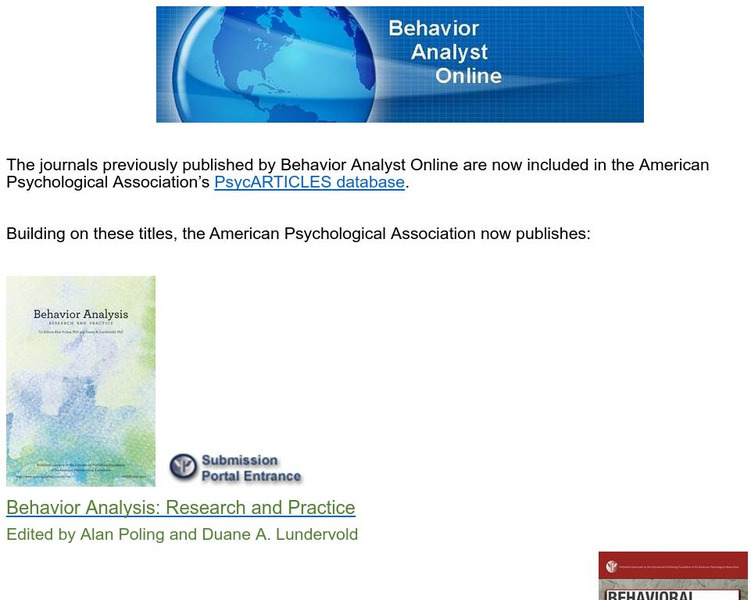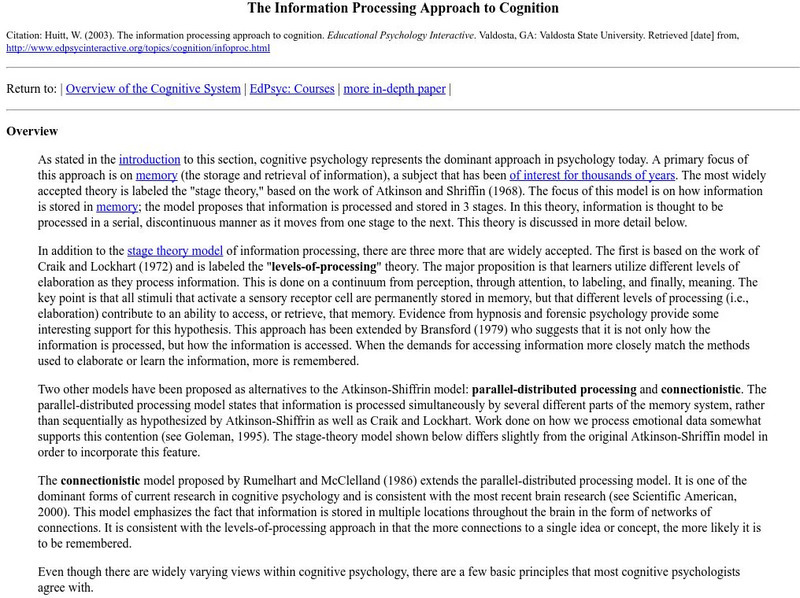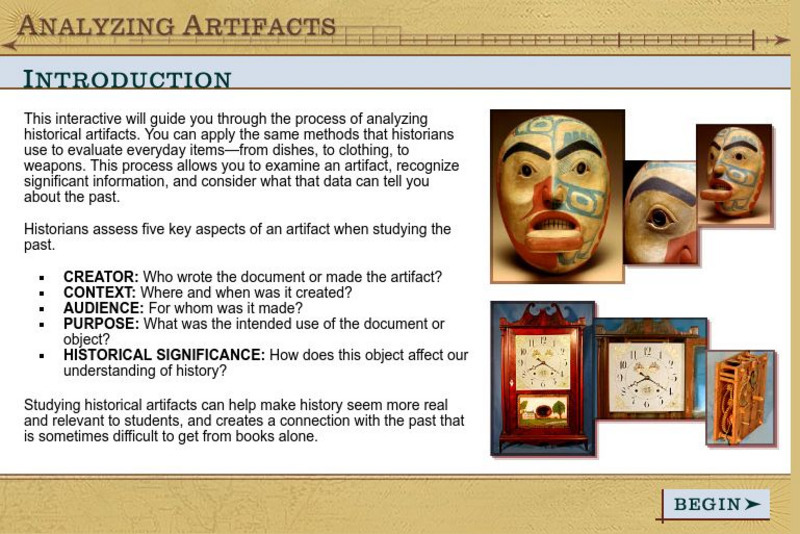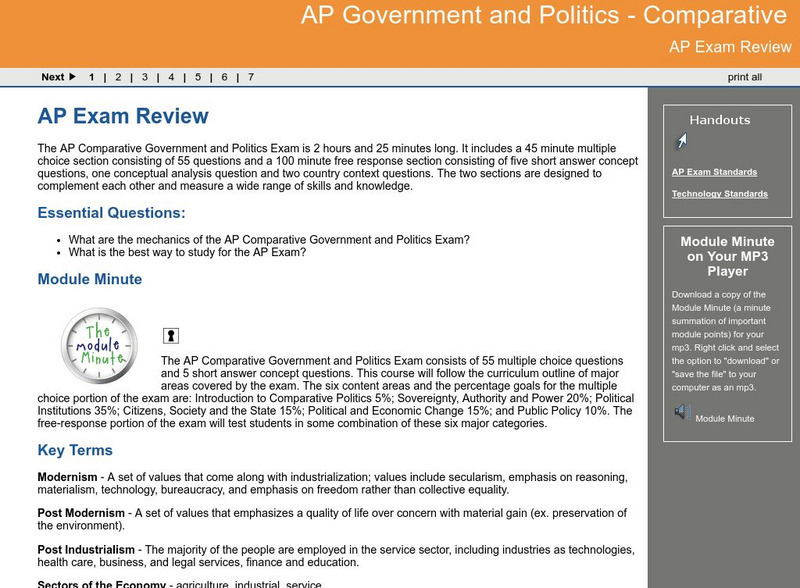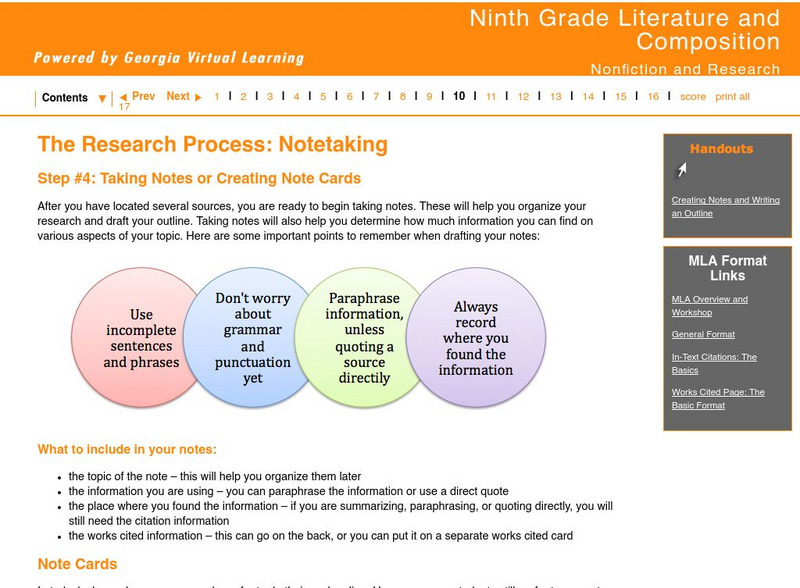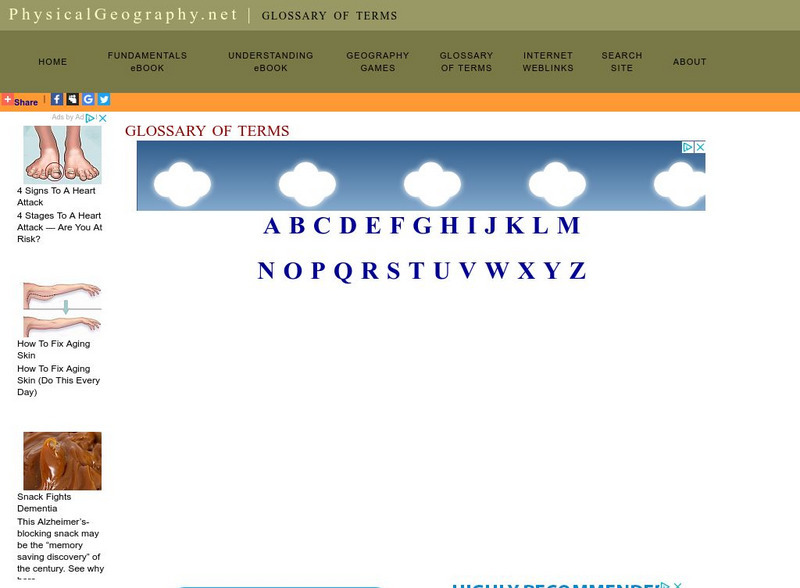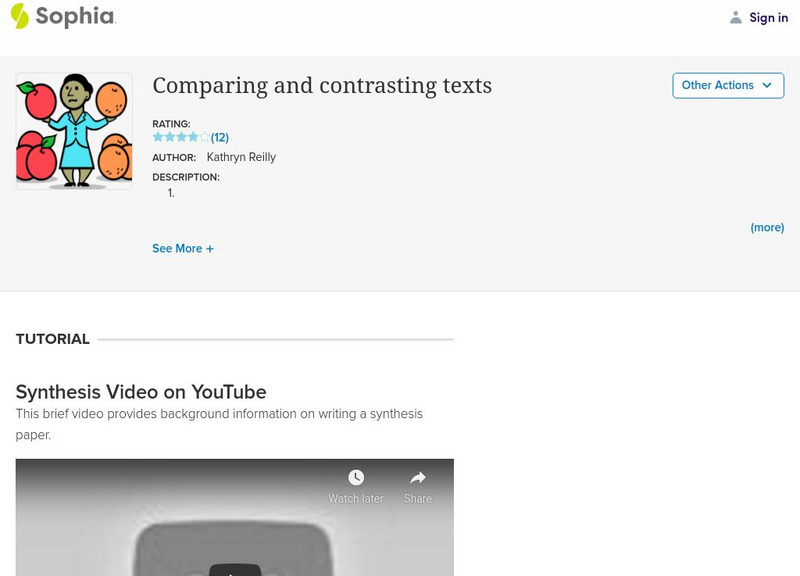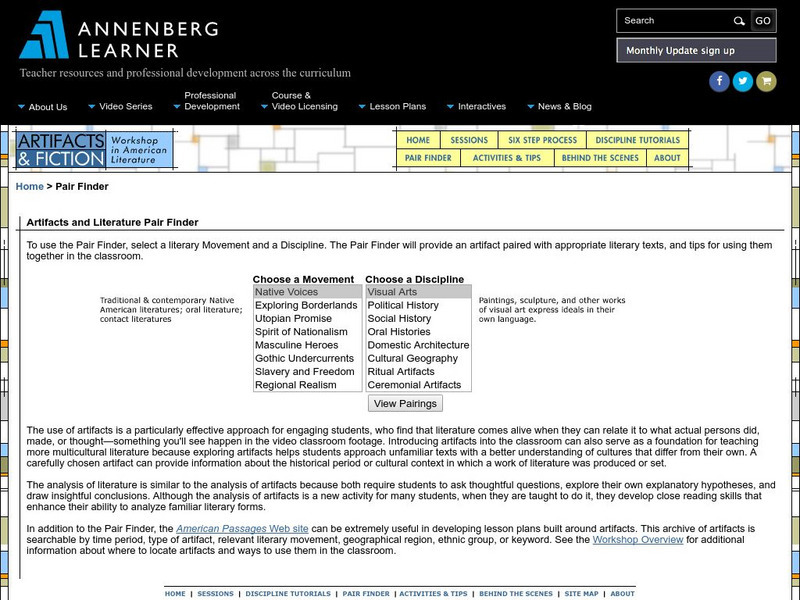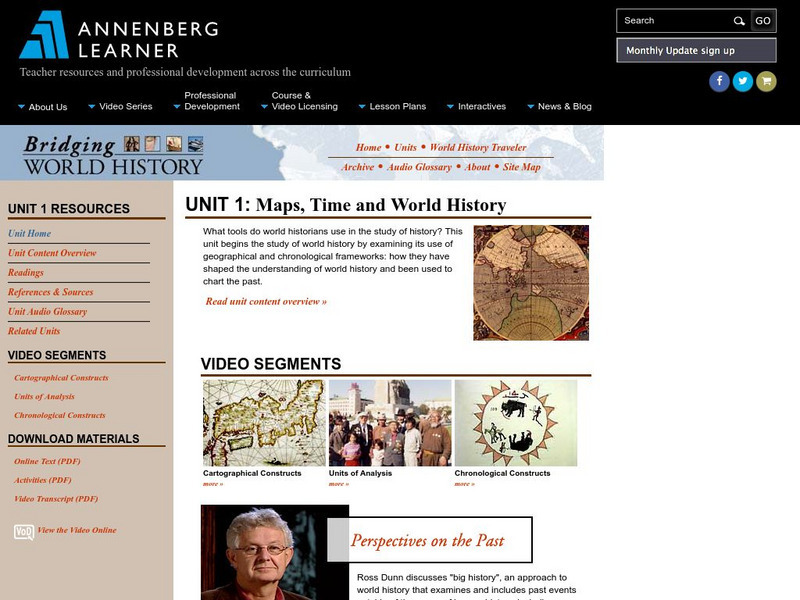Other
Behavior Analyst Online
A number of major professional behavior analysis journals can be accessed through this gateway. Recent issues as well as back issues are available and can be downloaded in PDF format. Several of the journals, e.g., Journal of Behavior...
Other
Educational Psychology Interactive:information Processing Approach to Cognition
Discusses the different models of information processing and the basic principles accepted in cognitive psychology. Outlines the different types of memory, and the principles of concept formation. Also provides a table listing examples...
Other
Teaching and Learning Resources: Learning Theories
Presents a table comparing three major learning theories - behaviorism, cognitivism, and constructivism. Lists major theorists for each, the role of the teacher, key ideas, how learning happens, the place of educational technology,...
Other
Theories of Learning in Educational Psychology: Learning Theories Site Map
Extensive information about four perspectives of learning theories, and the models that have been developed under each. These include the behaviorist perspective, the cognitive perspective, the humanistic perspective, and the social...
Other
Academic Reading: Sample Task [Pdf]
This Academic Reading task provides a practice assessment for identifying headings and subheadings. In the task, students must read the selection and then determine the best subheading for each of the sections.
Annenberg Foundation
Annenberg Learner: Analyzing Artifacts
Learn the steps in the 5-step process that historians use when they analyze an artifact as you investigate what you can learn from Native American and other items.
Georgia Department of Education
Ga Virtual Learning: Learning and Cognition: Psychology
Comprehensive unit on learning and cognition. Multi-media resources including text, presentation, learning activities, assignments and assessment.
Georgia Department of Education
Ga Virtual Learning: Psychology: Intelligence
Virtual learning course in which students explore the abstract concept of Intelligence. Students can watch a presentation, read informational text, and participate with interactive learning material.
Georgia Department of Education
Ga Virtual Learning: Ap Government and Politics: Comparative: Exam Review
Learning module contains AP Government and Politics exam review. Provides guidelines and strategies along with practice resources for exam preparation.
Georgia Department of Education
Ga Virtual Learning: Nonfiction and Research: The Research Process: Notetaking
This lesson focuses on taking notes for your research project. It explains what to included in your notes and how to write them. It offers a link to The Quality Writing Center: "Creating and Using Outlines" and Study Guides and...
Georgia Department of Education
Ga Virtual Learning: Rhetorical Landscape: Editorials
This lesson focuses on editorials including understanding their purpose and analyzing them. It provides links to analyzing an editorial handout, "Writing an Editorial" tutorial, and "PBS NewHour: Student Voice" essays.
Google
Google for Education: Finding Patterns in Spelling Errors and History
In this activity, students analyze spelling errors and large sets of data to find patterns, develop abstractions, and discover how large amounts of data can tell us much about our society.
Other
Physical Geography: Glossary of Terms
Teachers who are looking for a complete course study in physical geography need this site. It is very well organized and colorfully designed. It contains an online glossary, study guides, links, clip art, maps etc.
Other
Bowdoin: Reading, Writing, Researching for History: A Guide for College Students
Reference guide material discusses how to research, write and read for history.
Sophia Learning
Sophia: Comparing and Contrasting Texts
This tutorial focuses on writing a comparison and contrast paper for both literary texts and informational texts. It offers a YouTube video about writing a synthesis paper using either a point by point or a source by source arrangement....
Sophia Learning
Sophia: Revision Technique: Thesis and Support
This slideshow lesson focuses on assessing and revising the thesis, topic sentences, and supporting details in a paper. It uses the analogy of the body: the thesis and topic sentences are the bones and the supporting details are the...
Other
Partnership for 21st Century Learning
The Partnership website is an excellent place to learn what 21st century skills are, why they are important and who is supporting their development. Be sure to check out the Learning Hub.
Annenberg Foundation
Annenberg Learner: Artifacts & Fiction Pair Finder
Pair artifacts with appropriate literary texts, and find tips for using them together in the classroom by selecting a literary movement and a discipline with this handy tool.
Media Smarts
Media Awareness Network: Lesson Plan: How to Analyze the News [Pdf]
Lesson plan focusing on the importance of understanding how the news is a product with a specific scope, structure, slant and style at the forefront of its production.
Annenberg Foundation
Annenberg Learner: Interactives: Historical and Cultural Contexts
This interesting interactive website explains kinds of primary sources and gives you the chance to identify them in some games.
Other
Groucher College: Library Research Techniques for the Professional Scholar
This site provides clear techniques and guidelines on finding secondary and primary research for use in scholarly analysis that involves looking at the evidence and discovering a pattern that makes meaning.
Texas Education Agency
Texas Gateway: Synthesize Ideas in Informational/expository Text
[Accessible by TX Educators. Free Registration/Login Required] Learn how to synthesize and make logical connections between ideas within a text and across two or three texts representing similar or different genres and support with...
Virginia Tech
Digital History Reader: Introduction
An online learning module for the U.S. and European history. Presents central questions of key events in history. Students explore data, evaluate conflicting accounts or interpretations, and develop conclusions based on primary evidence....
Annenberg Foundation
Annenberg Learner: Bridging World History: Maps, Time, and World History
Learn how map projections and chronological constructs are used in the study of world history and help us to understand and interpret the past. Part of a larger site on world history, this unit on maps offers complete reading,...


